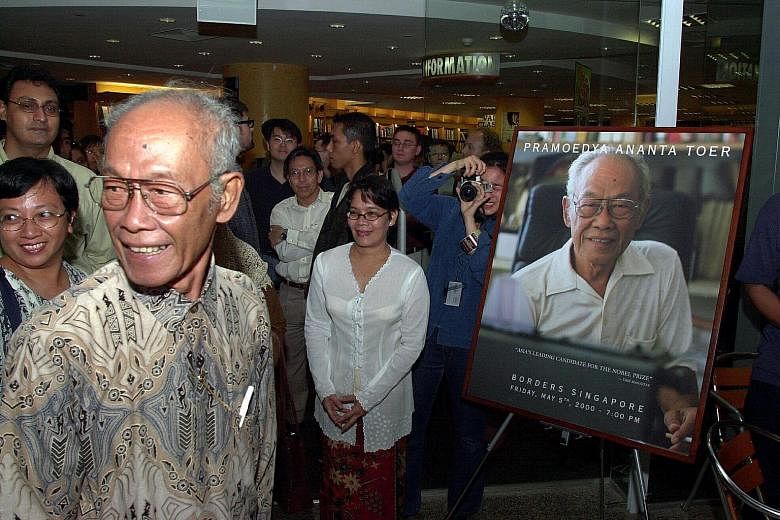In its editorial on May 8, the newspaper encourages those concerned to keep up with their efforts as the region has world class literary talent.
South-east Asia could claim to be - geopolitically speaking - one of the most strategic spots in the world, but it has contributed little to the world of literature.
While the region has contributed at least two renowned political figures - winners of the Nobel Peace Prize: pro-democracy Myanmar leader Aung San Suu Kyi and Timor Leste's independence movement leader Jose Ramos Horta - no figures from the South-east Asian literature scene have won the Nobel Prize in Literature.
The region's biggest contribution to the world of literature may have been only its cameo role in George Orwell's Burmese Days and some other works based on his sojourn there in the mid-20th century.
Indonesian writer Pramoedya Ananta Toer may have been close several times to winning the coveted trophy that is the Nobel Prize in Literature, but his passing in 2006 seems to have shut the door for Indonesia, or the region in general, winning the title.
Countries in Asean have the right to be envious of the achievements of our neighbour to the north, China and India to the west, two nations whose writers have not only won the Noble Prize in Literature but who have also gained greater international acclaim and recognition.
China's latest win was in 2012 when writer Mo Yan was awarded the prize for what the Nobel committee described as "hallucinatory realism".
India's literature scene got its Nobel Prize early in 1913 when Rabindranath Tagore won the award.
If India and China, two countries with large populations, can manage such an achievement, why can't South-east Asia, a vast region with approximately 625 million people and a rich tapestry of cultures, do the same?
The region certainly does not lack the talent necessary to produce world-class material. Poems and novels written by Philippine author Joze Rizal in the late 19th century were powerful enough to send shivers down the spine of the Spanish colonial government and later served as a foundation for the Philippines' nationhood.
The work of Pramoedya is an example of resistance literature at its finest, in the vein of Albert Camus and Alexandr Solzhenitsyn.
The only problem with Asean is, using the term coined by anthropologist Ben Anderson, the absence of an "imagined community". In spite of similar colonial backgrounds, mutual cultural affinity and similar socio-economic conditions, Asean countries are disparate entities with no lingua franca.
Literature, the spread of which took giant leaps forward after the advent of the printing press, should have been able to work as a bridge to connect different languages and cultures in the region and help give rise to a semblance of a unified cultural identity.
The ongoing Asean Literary Festival is a step in the right direction.
This is the first building block in the formation of a common identity for the entire region. A Nobel Prize in literature may be within reach soon.
A democracy like Indonesia should play a leading role in helping to realise Asean's literary community.
However, threats to ban the festival and others like it in Indonesia could shatter this dream.
* The Jakarta Post is a member of The Straits Times media partner Asia News Network, an alliance of 22 newspapers.

